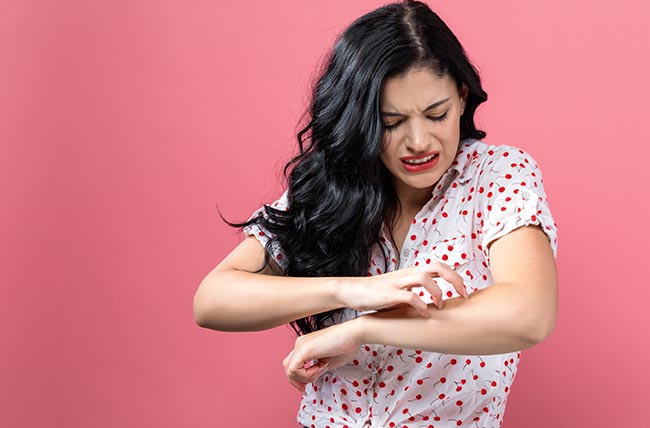August 2019
Your skin is itchy, red and dry. You can’t stop scratching. Google tells you it’s eczema.
But wait. Before you rush out to a pharmacy, there’s another skin condition that can have visually similar symptoms and your eczema cream probably won’t work for it: psoriasis.
Eczema and psoriasis are like twins –– they have a similar look, but deep down, they are fundamentally different.
Eczema and Psoriasis: How Similar Can They Be?
Both eczema and psoriasis can cause a rash –– patches of red, raised, itchy skin — and they can appear in the same places of the body, such as the hands and scalp. Neither is contagious but both can lead to infections. An experienced dermatologist may be able to spot the differences, but to the untrained eye, it’s hard to tell.
Although eczema can be more prevalent in the United States, psoriasis is also common. This makes self-diagnosis even harder, because the chance for getting either condition is high.
1. Genetics, Environment or Autoimmune: Which Causes Which
"The biggest difference between eczema and psoriasis is the underlying causes. Psoriasis is an autoimmune disease, meaning your immune system is dysfunctional and your skin cells grow too fast. The cells start to pile up on the top of the skin, forming the white scale," explains Jeffrey Millstein, MD, a physician at Penn Internal Medicine Woodbury Heights.
The cause of eczema is much more complicated and hard to determine. Both genetic and environmental factors could play a role in triggering the rash.
Researchers have found in some eczema patients that a gene responsible for creating a protective layer on the top of the skin has mutated (changed), which leaves the skin prone to infection and flare. Climate can also play a role — people living in a dry climate or city where they are exposed to pollutants often have dry skin.











